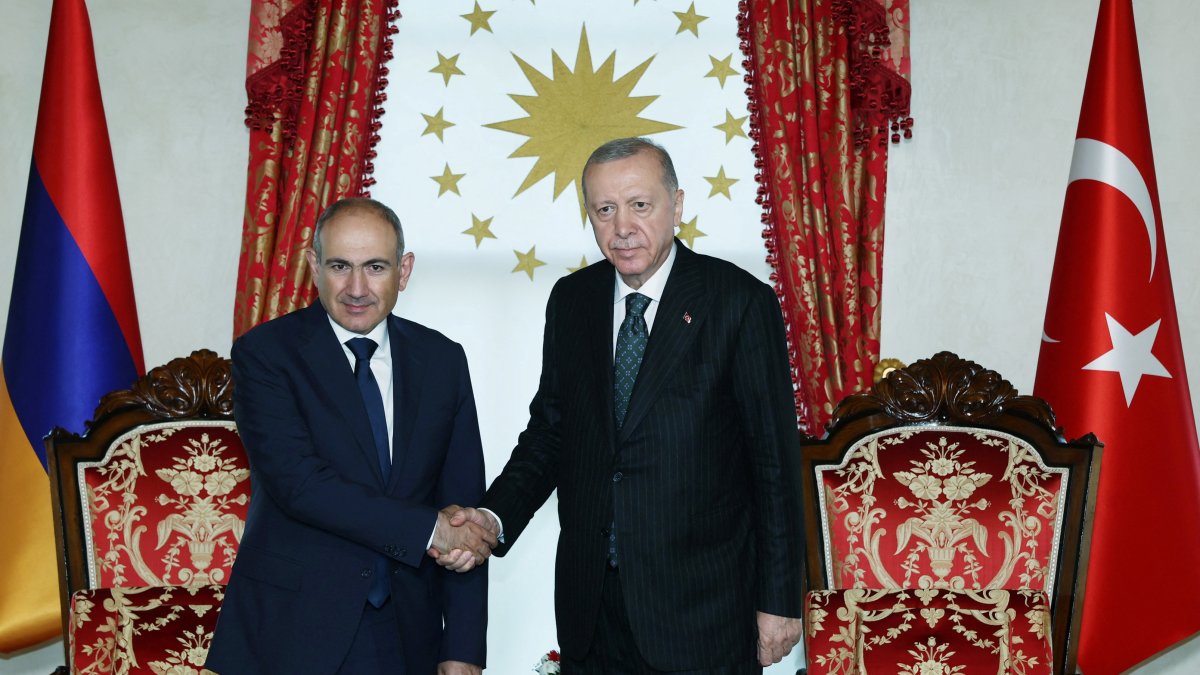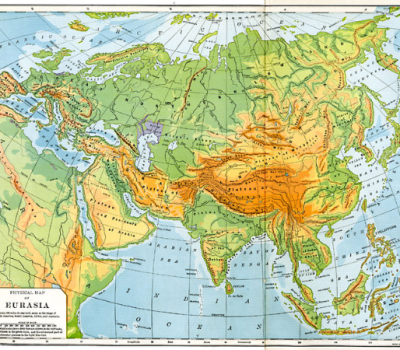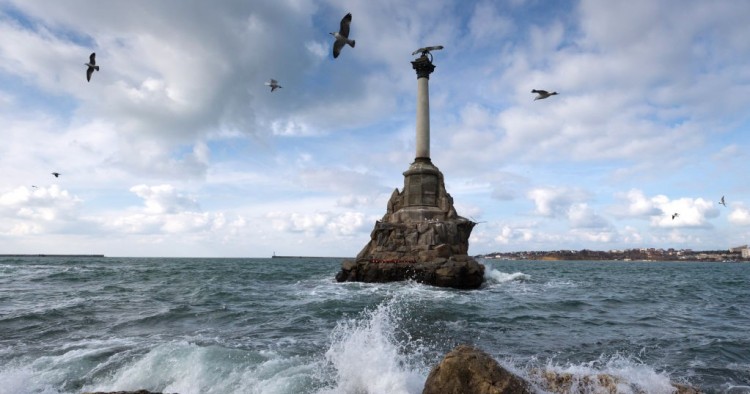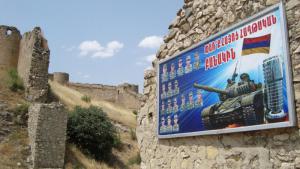
Daily Sabah (24 October 2018)
Teoman Ertuğrul Tulun*
The Balkans is not a frequently used term in the European Union context. For the EU, the Balkans mostly means “Western Balkans”; a term with no historical roots and fabricated for a divisive political agenda. In early 1990s, the Western countries, and specifically the EU countries as a group, had decided to transform the Balkan region ontologically, starting with its name. In line with this decision, they divided the Balkans into regions. According to the EU; Croatia, Bulgaria, Romania, and Greece (since they are EU members) are not part of the Balkans anymore. In this sense, they are part of “Europe”, a term that is itself subject to interpretations based on various political agendas. On the other hand, Bosnia-Herzegovina, Serbia, Montenegro, Kosovo, Albania, and Macedonia comprise what the EU calls the "Western Balkans" region. When confronted with this term, the question that inevitably comes up is; “well, who compromises the ‘Eastern Balkans’?” It seems that Turkey is by its lonesome self the “Eastern Balkans”, although this is strangely never explicitly stated.
According to Encyclopedia Britannica, the word “Balkan” is a Turkish word meaning “mountain”. The term “Western Balkans”, meanwhile, disregards the sociological and historical facts of the Balkans, destroys its integrity and tries purposefully to exclude a certain country, Turkey, from the Balkans, hence from Europe. From my perspective, the term “Western Balkans” is a misnomer. It represents an attempt to “balkanize the Balkans”, as in, it is an attempt to fragment an already fragmented region tragically full of historical and current rivalries and animosities.
As I had elaborated in my article titled “Half-Hearted EU Enlargement in the Balkans” (Daily Sabah 14 May 2018), the EU Commission adopted in February 2018 a strategy under the title of “A credible enlargement perspective for an enhanced EU engagement with the Western Balkans.” The strategy considers the enlargement policy “as part and parcel of the larger strategy to strengthen the EU by 2025. It also presented the enlargement package in the European Parliament in Strasbourg and declared the Commission’s recommendation that the EU Council opens accession negotiations with certain “Western Balkans” countries. Furthermore, it made specific recommendations concerning certain other countries of the said region.
Some reports and analysis consider the “Western Balkans” region as the southern backyard of Europe, while others refer to the “Western Balkans” as the “playground” of non-Western countries trying to increase their influence in the region. This approach is not limited to press reports or political analyses.
We witness the same understanding in the official statements of influential EU leaders. For example, French President Emmanuel Macron, in a speech to the European Parliament on 17 April, ruled out any expansion of the European Union in the context of “Western Balkans” until the Union is reformed. However, he also stated; “I don’t want a Balkans that turns toward Turkey or Russia.”
Another more recent example is the statement of German Foreign Minister Heiko Maas in the Bundestag on 12 September. During his speech, he reportedly stated that China could replace the EU as a major player in the “Western Balkans”. He also expressed the view that "It's important that we offer these [“Western Balkan”] countries a European perspective, and a reliable one, because they're otherwise turning to other countries, such as China, which are already ready and don't have the values we have."
In addition to these statements made by EU leaders, the European Union Institute for Security Studies (EUISS) has published on 3 September 2018 its Chaillot Paper No. 147 titled “Balkan futures - Three Scenarios for 2025”. EUISS website describes the Chaillot Papers as “the Institute's flagship publication written by external experts as well as the Institute’s Senior Analysts, and based on collective work or individual research, they deal with all subjects of current relevance to the Union’s security.” We understand from its title that said Chaillot Paper was prepared to shed light on the possible security situation in the Balkans by 2025, which was defined as a target date for strengthening the EU. Accordingly, the Executive Summary section of the Paper asks the following question: “What will the Western Balkans look like in 2025?” What is most interesting and striking in the Paper is that it refers to “disruptive external actors” in the “Western Balkans” as one of the game changers in the said region. The paper tries to explain the game changers in the region and asks the following question: “Several other external actors are actively working against the goal of liberal reform in the region. Will the Western Balkan states be able to mitigate these potentially disruptive influences, represented mainly by Russia, China, Turkey, and the Gulf States?”
It is quiet hair raising to see such a serious accusation against Turkey in a paper prepared under the responsibility of one of the institutions of the EU dealing with the security studies. One would expect that the said Chaillot Paper provides proper justifications for its accusation. However, this is not the case. According to the Paper, Turkey is a disruptive external actor for the “Western Balkans” because it; a) supports Bosnia-Herzegovina becoming a NATO member, b) supports Kosovo’s independence, c) encourages NATO to invite Macedonia to join the Alliance, d) initiates trilateral meetings between Bosnia-Herzegovina, Serbia, and Croatia, e) enjoys positive reception among the citizens of “Western Balkan” countries and, f) is respected by the young Serbian people. The Paper thus nonsensically argues that Turkey is a “disruptive external actor” because it promotes friendliness, cooperation, stability, and security in the region. After thorough examination, it becomes apparent that the Paper fails to provide any rationale for why Turkey should be designated as a disruptive external actor.
It is very deplorable to read such an unprofessional assessment in the flagship publication of the European Union Institute for Security Studies. In my opinion, EUISS owes a correction for naming Turkey as one of the “disruptive external actors” in the Balkans without providing any proper justification.
The recent assessments and views expressed in the publications, strategies, and statements of the EU institutions and leaders leads me to the following conclusion: the EU’s interest in the Balkans has been prompted mostly by fears about the roles of other countries in the region. If this is the case, this interest represents the old “spheres of influence” understanding of European powers’ colonial expansion into Africa and Asia in the past centuries.
The Balkans is an integral part of Europe. The EU should not consider the Balkans only as part of a “sphere of influence” game. It should respect the historical, social, cultural integrity of the region. In this respect, it should be underlined that Turkey is not simply a geographically Balkan country, but has been socially and culturally been part of this geography for centuries. Turkey is not an outside power vying for dominance in the region, it is instead a Balkan country focused on cultivating its ties with fellow Balkan countries and on furthering the region’s development and maintaining its integrity. Turkey has never explicitly or implicitly showcased a rivalry mentality with any other country regarding this region. Nor has anyone been able to demonstrate how Turkey’s initiatives represent a danger for the Balkans. Insisting on reading Turkey as an outside power with a negative influence on the Balkans demonstrates a poor understanding not only of Turkey but of the Balkans as a whole.
* Analyst at Center for Eurasian Studies (AVİM)
**Photo: Daily Sabah
https://www.dailysabah.com/op-ed/2018/10/25/the-balkans-neither-the-backyard-of-the-eu-nor-the-playground-of-any-country
© 2009-2025 Avrasya İncelemeleri Merkezi (AVİM) Tüm Hakları Saklıdır
Henüz Yorum Yapılmamış.
-
 PASHINYAN'S VISIT: NEW PARAMETERS OF ARMENIA-TÜRKİYE NORMALIZATION - DAILY SABAH - 03.07.2025
PASHINYAN'S VISIT: NEW PARAMETERS OF ARMENIA-TÜRKİYE NORMALIZATION - DAILY SABAH - 03.07.2025
Teoman Ertuğrul TULUN 03.07.2025 -
 IS EURASIANISM A MONOLITHIC CONSTRUCT? - 19.01.2024
IS EURASIANISM A MONOLITHIC CONSTRUCT? - 19.01.2024
Teoman Ertuğrul TULUN 22.01.2024 -
 CORONAVIRUS PANDEMIC AND THE 2021 BIOLOGICAL WEAPONS CONVENTION - DAILY SABAH - 05.05.2020
CORONAVIRUS PANDEMIC AND THE 2021 BIOLOGICAL WEAPONS CONVENTION - DAILY SABAH - 05.05.2020
Teoman Ertuğrul TULUN 20.05.2020 -
 FIRTINADA YOL ALMAK: ROMANYA'NIN SİYASİ ÇALKANTILARI VE DIŞ MÜDAHALELER ARASINDA EKONOMİK REFORMLAR - DAILY SABAH - 10.01.2025
FIRTINADA YOL ALMAK: ROMANYA'NIN SİYASİ ÇALKANTILARI VE DIŞ MÜDAHALELER ARASINDA EKONOMİK REFORMLAR - DAILY SABAH - 10.01.2025
Teoman Ertuğrul TULUN 19.02.2025 -
 REMEMBERING SOLINGEN: THE FRACTIOUS RISE OF EXTREME XENOPHOBIA IN WESTERN EUROPE - HÜRRİYET DAILY NEWS - 19.05.2018
REMEMBERING SOLINGEN: THE FRACTIOUS RISE OF EXTREME XENOPHOBIA IN WESTERN EUROPE - HÜRRİYET DAILY NEWS - 19.05.2018
Teoman Ertuğrul TULUN 21.05.2018
-
 THE TURKISH-ARMENIAN CONTROVERSY’S REFLECTION TO AMERICA AND WHETHER ARMENIA IS USED FOR RUSSIA’S GEOPOLITICAL OBJECTIVES - ROBERT B. MCKAY - 02.01.2022
THE TURKISH-ARMENIAN CONTROVERSY’S REFLECTION TO AMERICA AND WHETHER ARMENIA IS USED FOR RUSSIA’S GEOPOLITICAL OBJECTIVES - ROBERT B. MCKAY - 02.01.2022
Robert B. MCKAY 22.03.2022 -
THE LEMKIN HOLE IN THE SWISS CASE
Tal BUENOS 31.07.2014 -
MAKEDONYA’NIN AB ÜYELİĞİNE BULGARİSTAN ENGELİ
Erhan TÜRBEDAR 08.11.2012 -
 KARADENİZ DESTANI: İMPARATORLUKLAR, ÇATIŞMALAR VE YENİ BİR DÜNYA DÜZENİNİN ŞEKİLLENMESİ - 05.01.2024
KARADENİZ DESTANI: İMPARATORLUKLAR, ÇATIŞMALAR VE YENİ BİR DÜNYA DÜZENİNİN ŞEKİLLENMESİ - 05.01.2024
Zoran Ivanov 05.01.2024 -
 ARMENIAN`S DEAD END
ARMENIAN`S DEAD END
Kamal Makili-Aliyev 29.09.2016


